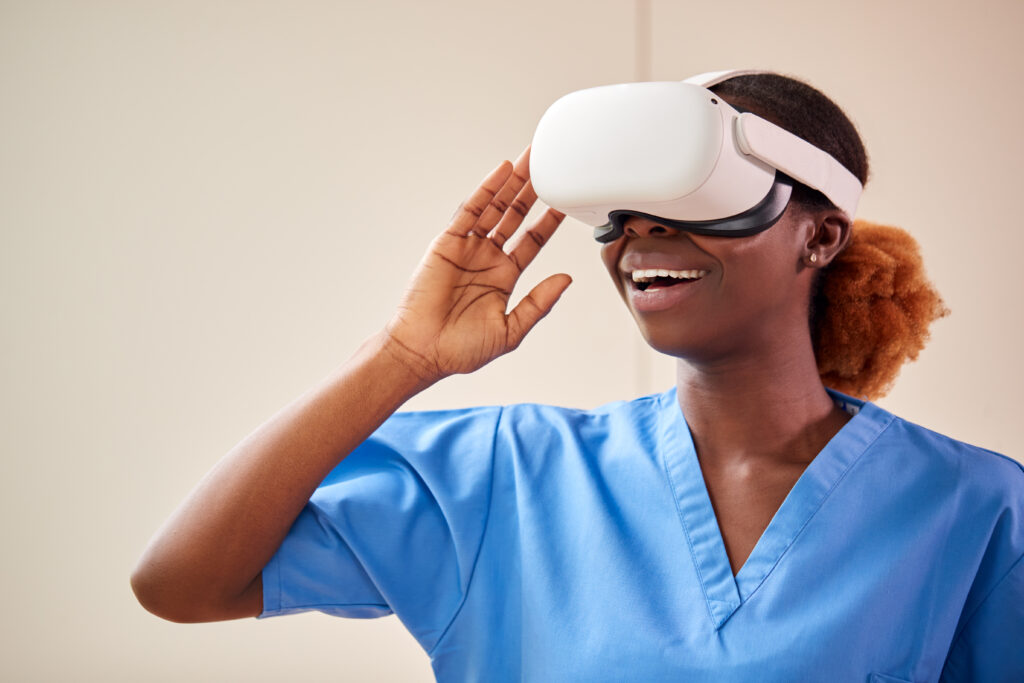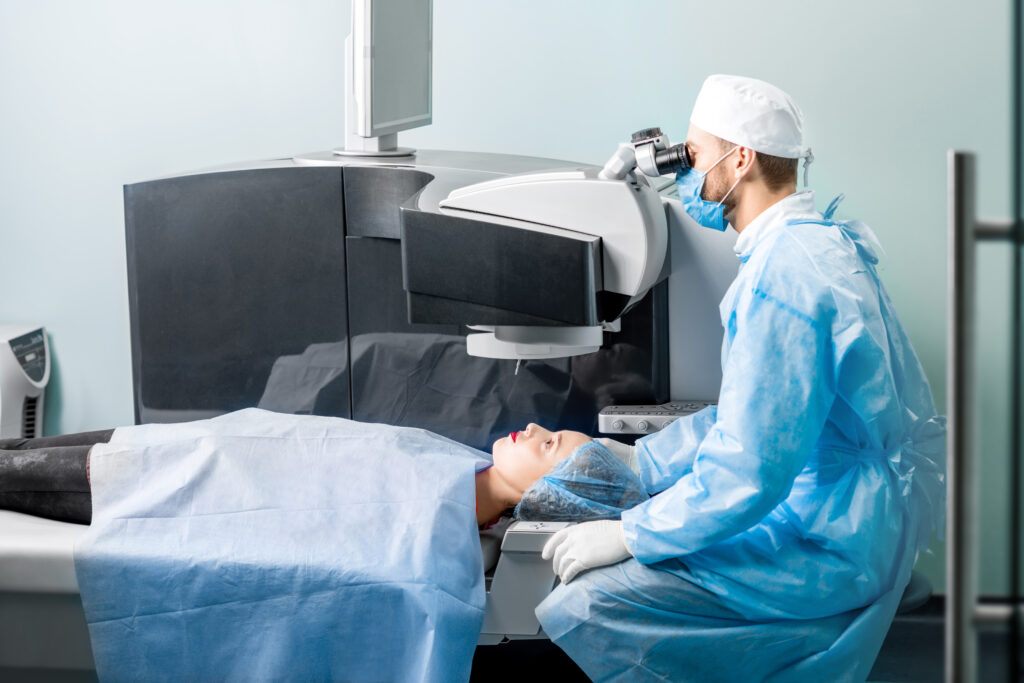
Technology is developing at an incredible pace, and with the advent of virtual and augmented reality applications, there is a new way for medicine to evolve and improve. The Metaverse technology offers opportunities for the future of medicine in healthcare, which will be discussed in this article.
What is Metaverse?
It is a concept that describes the future development of the Internet. It enables users to actively experience the Internet and not just passively consume it. It combines various technologies such as augmented reality, virtual reality and fast Internet such as 5G to open up new dimensions and levels of the world. It thus offers a kind of virtual parallel world in which users can interact and communicate, as well as have virtual experiences and experience digital content.

How can be used in medicine?
1. Conduct medical training and simulations
Medical training and simulations can be conducted that simulate practice in the real world. For example, operations and procedures can be practiced in a virtual environment to minimize the risk of errors.
2. Virtual doctor visits and consultation
Patients can have a virtual doctor visit without having to leave the house. This will be particularly useful for patients who have difficulty accessing a doctor’s office due to distance, mobility issues, or other barriers. Virtual consultations can also be used for mental health issues to provide patients with a more comfortable and confidential environment.
3. Remote monitoring and care
It can also be used for remote monitoring and care of patients. Sensors can be placed in the virtual environment to collect important data, such as vital signs and movement activity, which can then be transmitted to medical personnel. This would be particularly useful for patients with chronic conditions or elderly people.
4. Virtual rehabilitation
Patients can also benefit from virtual rehabilitation programs that are tailored to their needs. For example, people with motor impairments can perform targeted exercises in the virtual environment to improve their mobility.

Challenges in implementing Metaverse in medicine
Although the use of it in medicine brings many benefits, there are also challenges that need to be considered, such as:
Privacy and security
As the virtual world is connected to the internet, there is a risk of personal data or medical information being compromised. It is important to ensure that the virtual environment is secure and protected to ensure the privacy and security of users.
Technical infrastructure
Implementing it in medicine requires a strong technical infrastructure, including a fast internet connection and powerful hardware. This may be a challenge for some patients and healthcare facilities.
Regulation and approval
It is also important to ensure that the use of it in medicine meets the proper regulatory and approval standards. For example, the FDA (US Food and Drug Administration) has already begun regulating virtual reality and augmented reality applications for medical purposes.

The most important questions about medicine in the Metaverse
Is the use of this technologies in medicine safe?
It is important to ensure that the virtual environment is secure and protected to ensure the privacy and security of users. In addition, technical infrastructure and regulation and approval must also be considered.
How can patients benefit?
Patients can benefit from virtual training and simulations, virtual doctor visits and consultation, remote monitoring and care, and virtual rehabilitation that are tailored to their needs.
Are there challenges in implementing it in medicine?
Yes, implementing it in medicine requires a strong technical infrastructure, including a fast internet connection and powerful hardware. In addition, regulation and approval must also be considered, and it is important to ensure that the virtual environment is secure and protected.
How is it regulated by the FDA?
The FDA has begun regulating virtual reality and augmented reality applications for medical purposes to ensure that they meet the proper regulatory and approval standards.
Where can I learn more about Metaverse in medicine?
There are many online resources that discuss the use of this plattforms and technoligies in medicine. A good starting point is to search for research papers and articles in scientific journals. If you are interested in how it can change the future of medicine in healthcare, contact us at Exponential Dimensions. Our agency specializes in the development of Metaverse applications, and we are ready to work with you to create innovative solutions for medical care. Contact us today to learn more.
Conclusion
Metaverse offers many exciting opportunities for the future of medicine in healthcare. From virtual training and simulations to virtual doctor visits and remote monitoring, the use of this new technologies and plattforms can improve the efficiency and quality of medical care. However, it is important to consider the challenges associated with implementing this technology to ensure that it is used safely and effectively.